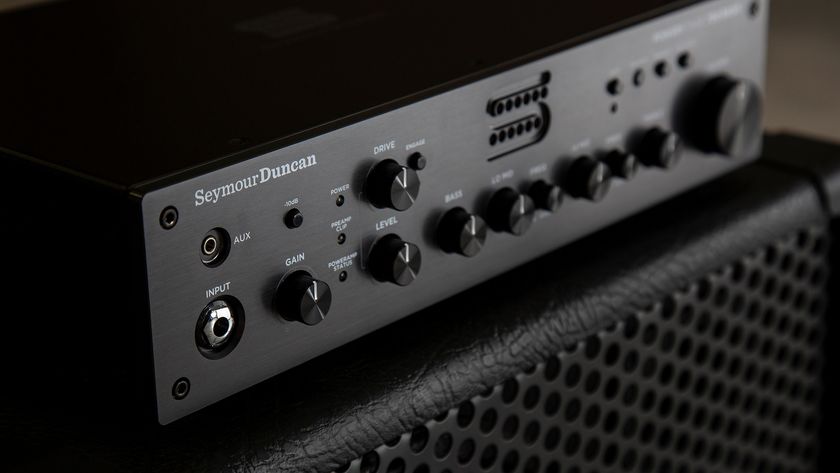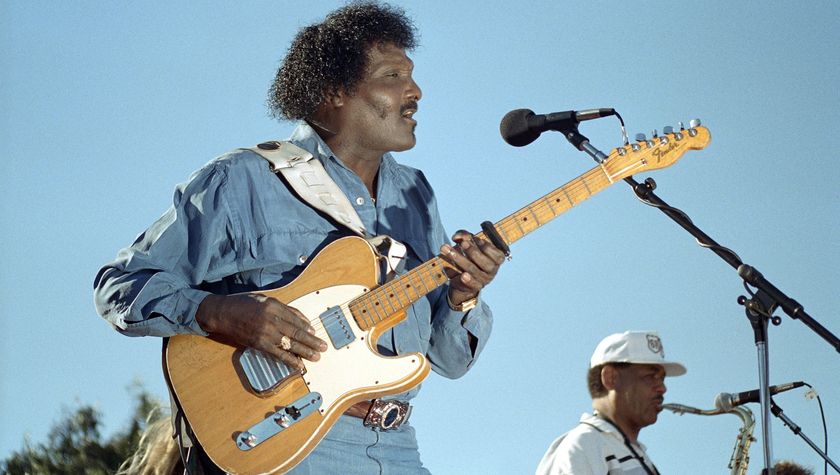WAAX: “It kind of sounds awful, but in this amazing way”
On their second album, At Least I’m Free, WAAX throw caution to the wind and embrace calamity
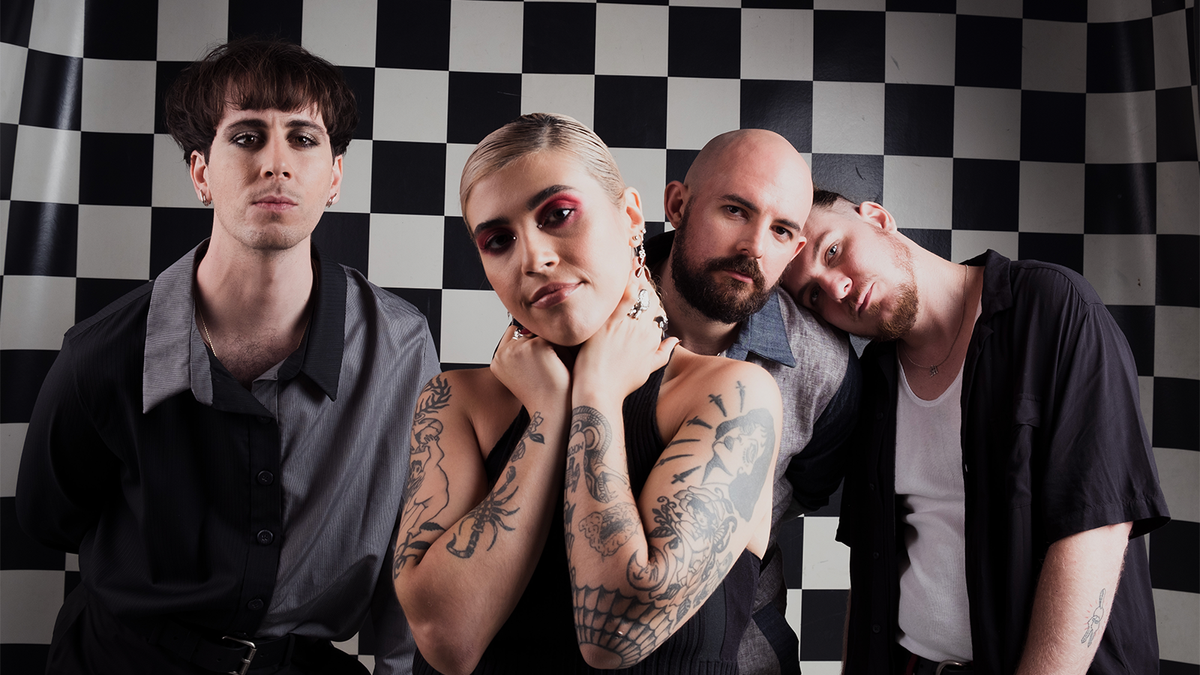
Luck’s never really been on WAAX’s side – their early years were fraught with lineup dramas and stylistic clashes, which carried on right into the lead-up to the release of their debut album, 2019’s Big Grief. Hell, just a few months before they released it, their lead guitarist and co-songwriter was ousted on bad terms, and his replacement – underground Brisbane pop-rock legend James “Flames” Gatling – was thrown into the Mariana Trench of deep ends, having to learn their entire discography right before they jetted off for a North American tour. Then, right when they planned to tour Big Grief, WAAX were knocked on their collective ass by COVID-19.
Any other band would’ve thrown in the towel then and there – but then again, WAAX aren’t any other band. Led by the inimitable powerhouse that is frontwoman Marie “Maz” DeVita, the band knuckled down on writing for the follow-up to Big Grief, with the MO being to create a truly unhinged rollercoaster of emotions and tones, where the only rule was that there were no rules. Gatling became DeVita’s new writing partner, and having played in approximately 9,381 bands before WAAX, he came with an encyclopaedic knowledge of pop music in tow. The end result of their hustle is the band’s most exciting and unpredictable body of work yet, At Least I’m Free.
The album saw WAAX return to the La Cueva studio in Byron Bay, where they reunited with producing duo Bernard Fanning (yes, that Bernard Fanning) and Nick DiDia – but At Least I’m Free is less of a sequel to Big Grief than it is the debut album of a completely reinvented and revitalised iteration of WAAX. To learn more about it, Australian Guitar caught up with Gatling and longstanding rhythm guitarist Ewan Birtwell.
Before joining WAAX, you played in a bunch of underground Brisbane indie-rock bands. How does all of that experience inform what you bring to the table here?
Gatling: The best thing about being in so many bands is that it’s made adapting to different things really easy. With a lot of those bands, people were just like, “Can you play bass for me at this gig?” And then I’d play in that band for that gig, and they’d be like, “Oh, actually, can you play bass for me at every gig?” The difference with WAAX is that I got thrown into a situation where they were like, “Hey, can you learn a full set in half an hour?” And I was like, “Uhhhhh… I guess so?”
But when we actually got together… I thought it was going to be a rehearsal on a Thursday night – Maz messaged me and she was like, “Can you come to the studio and meet us?” And I was like, “Yeah, sure,” and I got there, and we ended up just drinking lots of beers and hanging out. And they were like, “Okay, Saturday morning, we have rehearsal,” so I went home and learnt every song that they had out on Spotify. And I think that helped. I don’t think I’ve ever been super crash-hot at guitar, but I’m definitely good at learning things quickly.
There is a lot of stuff on this album that feels like a step away from Big Grief – that sort of Pixies-ish, almost Weezer-y noodling on ‘Man Like Me’, for example. Where did that vibe come from?
Get The Pick Newsletter
All the latest guitar news, interviews, lessons, reviews, deals and more, direct to your inbox!
Birtwell: I think for James and I, working on guitar parts is its own kind of thing. He and and Maz work on getting a song structure together, and then we’ll take some time apart to just kind of sit with the song, and then we’ll bounce ideas back and forth with each other for ages, just to see what sticks. And eventually something will, and it’s like, “Okay, that’s cool, let’s roll with that.” And then as the recording process goes on, it either sticks through the whole process, or it doesn’t.
Gatling: I think oftentimes, you’ll hear a song and you’ll be like, “Oh, I like that song... Okay, how can I make that song into my song without getting sued?
Birtwell: We also spent a lot of time just sitting down and bouncing random shit off each other. We’d get past the songs we’d work on in a session, and then I’d go ‘round to James’ place and we’d sit on his balcony, or he’d come to my place, and we’d just talk for like a while – there wouldn’t necessarily be any goal with it, we’d just kind of chat and noodle away and just play to each other for a bit. And something would always come out of that – it might just be one line, but it always ends up being what makes the song.
Gatling: I’d also never really been into heavy music. I wasn’t a heavy music guy until, like, five years ago. And so I think a lot of the instrumental stuff is actually drifting away from being the really, really heavy WAAX of old. It definitely dips back into it – and probably even deeper than than any other WAAX record... ‘Jeff On The Streets’, for example, the end of that song is thrashy and gross and discordant – it kind of sounds awful, but in this amazing way. But it also starts with a spy riff, like this Pink Panther-esque bullshit.
That song in particular is such a fucking journey.
Gatling: With that one, we were listening to lots of Foals. The bridge needed to be like ‘Inhaler’, you know, where it’s like, “Can’t get enough space – downg, downg, downg!” And you think it can’t get any bigger, but then it gets bigger, and you’re like, “Oh my God, they’ve done it again!”
Especially going back to Bernie and Nick as well, did you feel more confident to shake things up a little more?
Birtwell: I think so. I think having worked with them [on Big Grief], we definitely got a sense of how they worked, and vice versa, so this time around, there was a bit more of that trust and a bit more willingness to push backwards and forwards on things. Like James would have an idea to try something guitar-wise, or Maz would have a vocal harmony or something, and I think they were a bit more willing to be like, “Okay, let’s see where this could go…”
Gatling: It’s interesting, because I obviously wasn’t there for the first album, but when I came in, it just felt like seeing like an uncle or something. It felt like the band was just going home for Christmas, it was great. They would kind of bag you out if you did something stupid or played a part sloppily – they’d just be like, “Come on Ewan, that wasn’t your best.”
Birtwell: I think that relationship developed really quickly on the first album, so it was a really natural decision to do the second one with them as well. Because yeah, like James said, there was that kind of fatherly energy. And then this time around, they let us be a little freer to make our own mistakes.
Gatling: That’s literally what Nick DiDia said to me said every single time. I’d be like, “Does that sound good?” And he’d go, “Whatever, man, it’s your record.” And I’d be like, “…But does it sound good!? I know it’s my record, but does it sound good!?”

Ellie Robinson is an Australian writer, editor and dog enthusiast with a keen ear for pop-rock and a keen tongue for actual Pop Rocks. Her bylines include music rag staples like NME, BLUNT, Mixdown and, of course, Australian Guitar (where she also serves as Editor-at-Large), but also less expected fare like TV Soap and Snowboarding Australia. Her go-to guitar is a Fender Player Tele, which, controversially, she only picked up after she'd joined the team at Australian Guitar. Before then, Ellie was a keyboardist – thankfully, the AG crew helped her see the light…
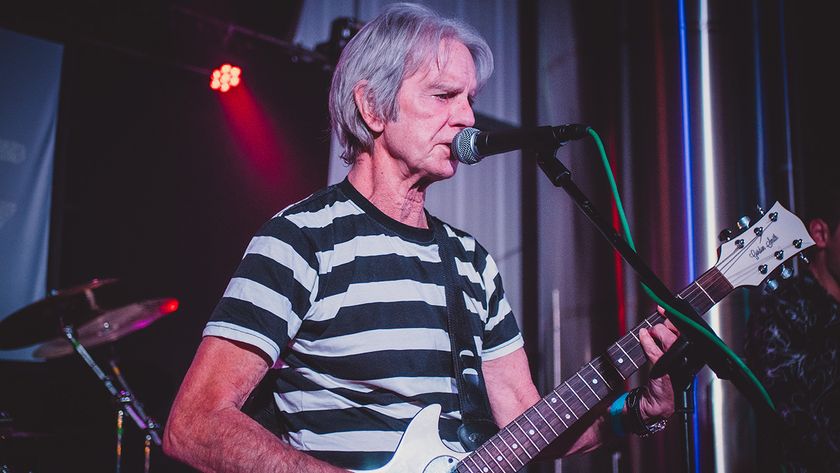
“I get asked, ‘What’s it like being a one-hit wonder?’ I say, ‘It’s better than being a no-hit wonder!’” The Vapors’ hit Turning Japanese was born at 4AM, but came to life when two guitarists were stuck into the same booth
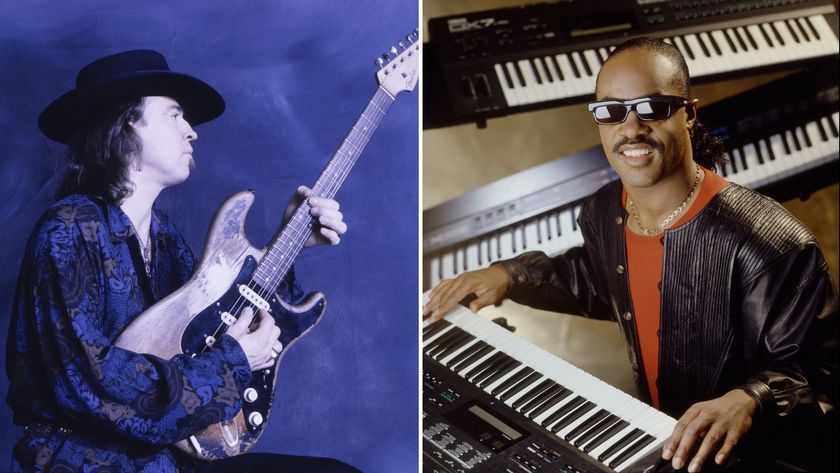
“Let's play... you start it off now, Stevie”: That time Stevie Wonder jammed with Stevie Ray Vaughan... and played SRV's number one Strat
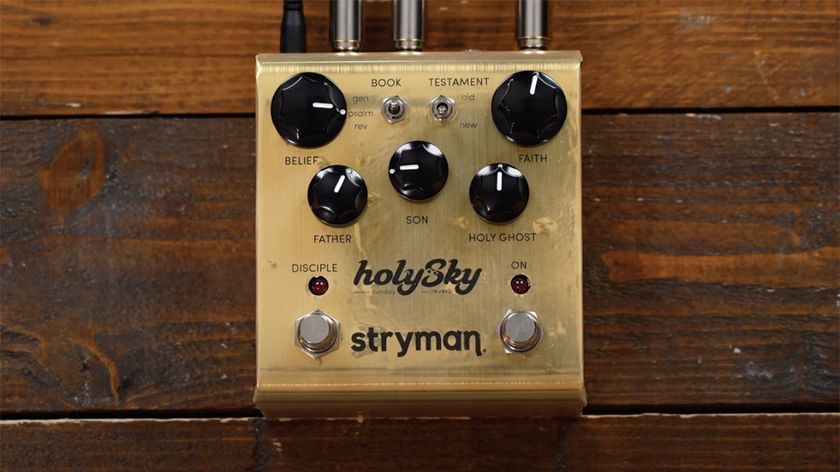
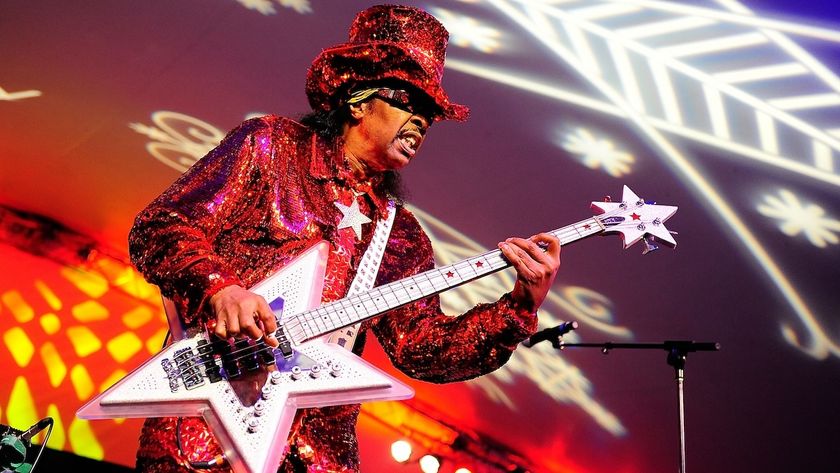
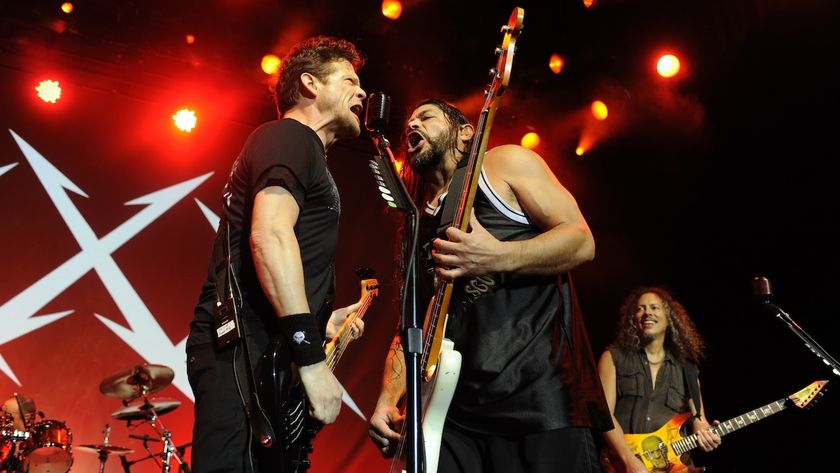
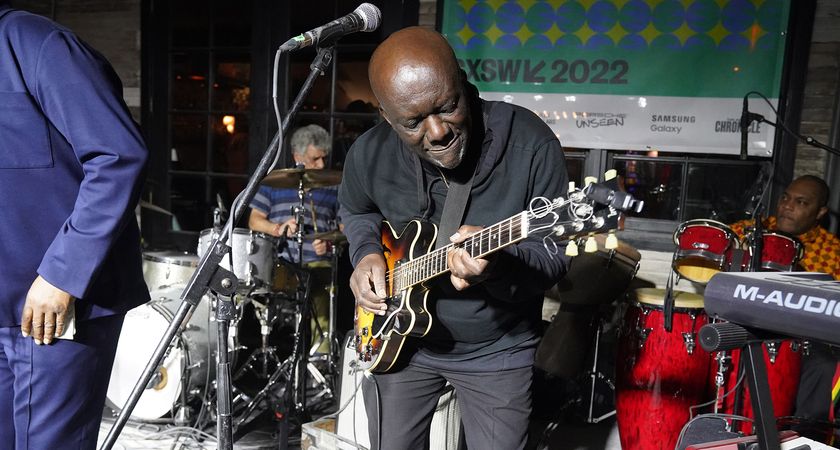
![[L-R] George Harrison, Aashish Khan and John Barham collaborate in the studio](https://cdn.mos.cms.futurecdn.net/VANJajEM56nLiJATg4P5Po-840-80.jpg)
